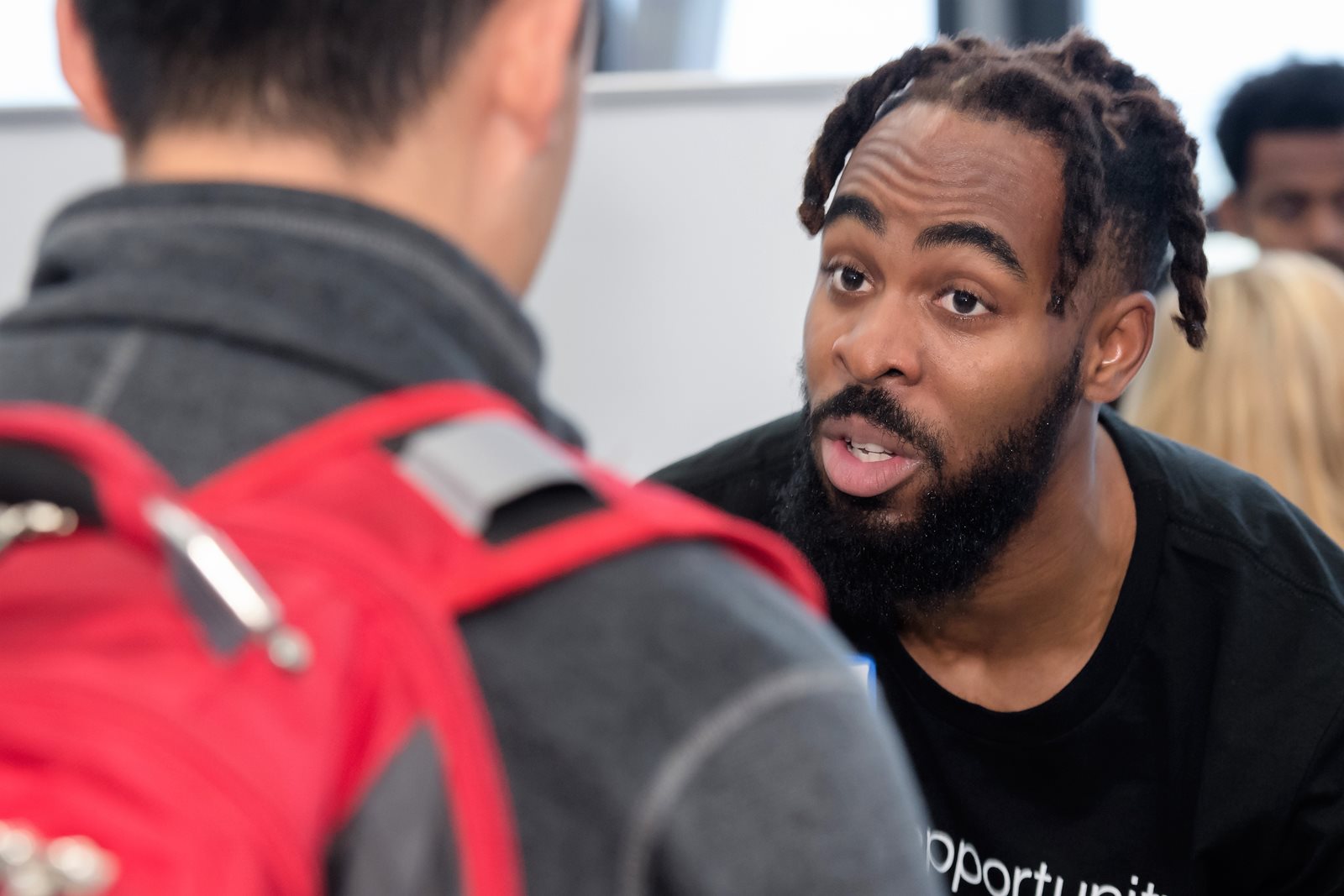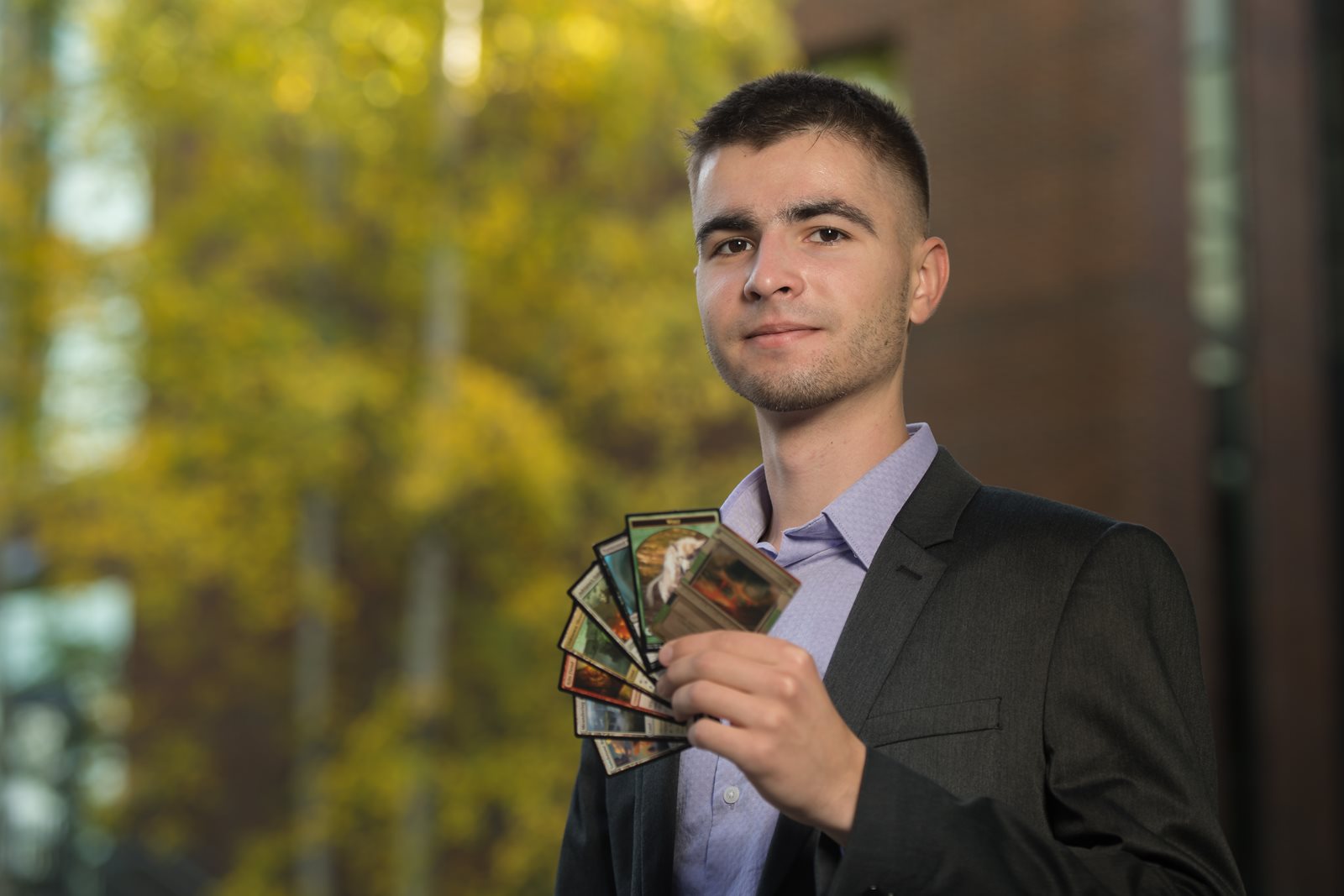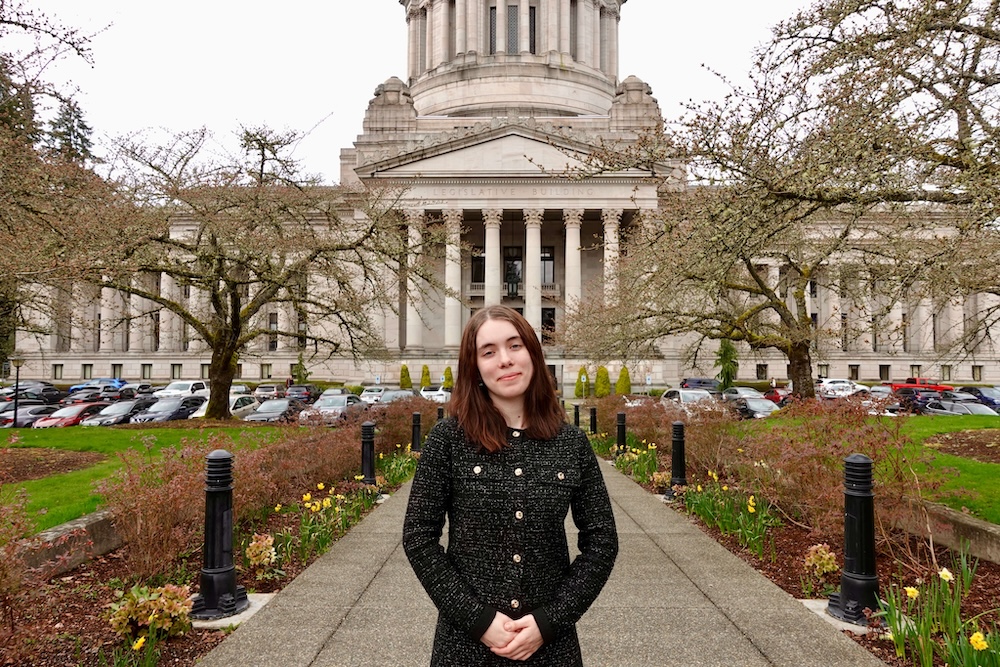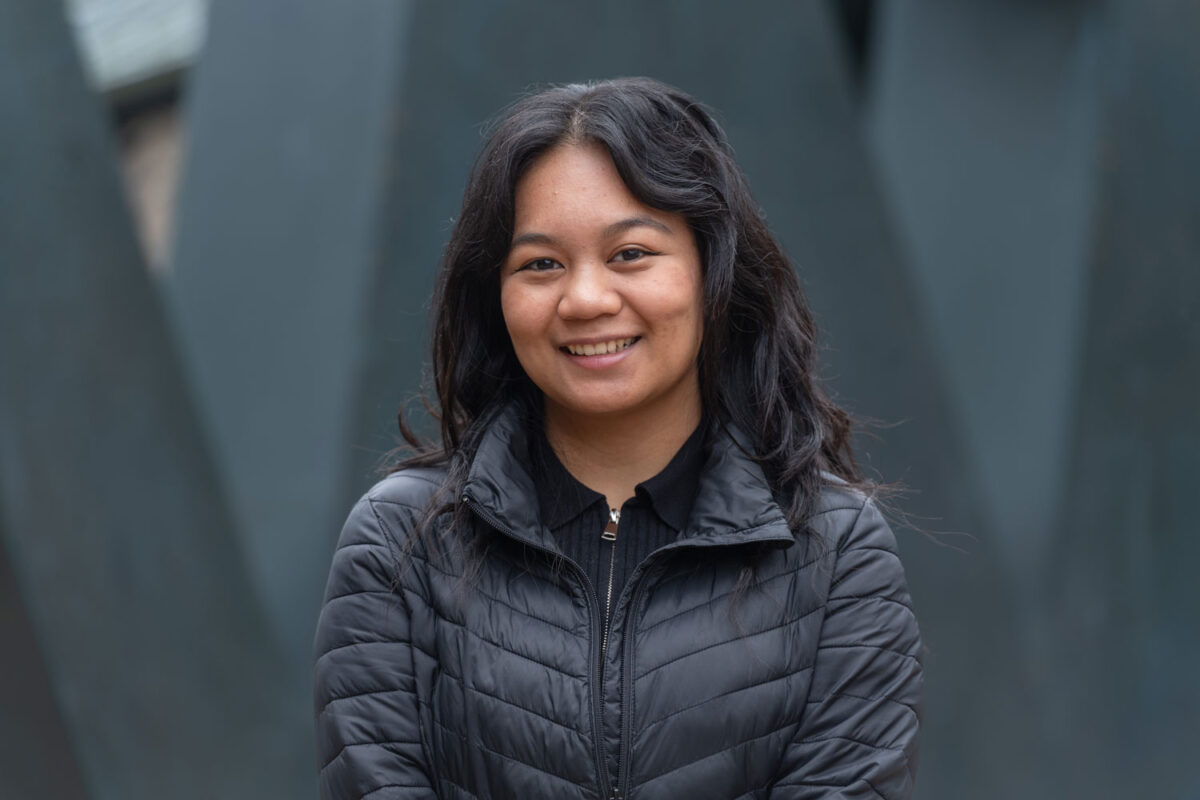By Douglas Esser
Marc Studer photos
Pavel Krivopustov is on track to graduate in June with a degree in computer science and software engineering, and says it would not have been possible without the Washington State Opportunity Scholarship (WSOS).

The second of three sons in a family that moved from Russia 14 years ago, Krivopustov grew up in Spokane and was valedictorian at Rogers High School, but college didn’t look possible on the family’s income.
“If not for the scholarship, I wouldn’t be able to pursue a four-year degree,” Krivopustov said.
A high school adviser provided information about WSOS, then a career fair pointed Krivopustov toward the University of Washington Bothell, where smaller classes and opportunities for one-on-one meetings with professors beckoned.
WSOS provided Krivopustov $2,500 the first and second years, $5,000 the third year and $7,500 the fourth year.
“It keeps you on track and motivated to pursue your degree because every year it pays more of your education,“ said Krivopustov, who also received other financial aid and will graduate without any loan debt.
UW Bothell has nine new WSOS scholars this year and a total of 130 on campus — the most ever. WSOS says 67 scholars have graduated from UW Bothell, and the scholars have received about $2.3 million in funding.
“UW Bothell has been an essential partner in ensuring our scholars achieve academic success on campus and beyond,” said Klondy Canales, a WSOS program officer, citing faculty and staff support, state-of-the-art buildings, academic and career advising, and research opportunities.
Created in 2011 as a public-private partnership, the scholarship program is funded by Microsoft, Boeing and the Rubens Family Foundation, led by Gary Rubens, who also is a member of the UW Bothell Advisory Board. The entrepreneur, investor and philanthropist donated $20 million to WSOS in 2015. The state of Washington provides matching funds.
WSOS helps low- and middle-income Washington state residents earn their bachelor’s degrees in high-demand fields of science, technology, engineering, math and health care. Scholarship winners can receive up to $22,500 over five years, plus development help from program officers such as Canales and Patrick Okocha.
“The goal is to retain some of the most talented health care and STEM students and keep them in the state,” Okocha said.

Meetings helped Krivopustov “figure out what it’s like to be a student.” Events helped opportunity scholars develop career skills, such as interviewing. Scholars also visited companies and met with executives, something Krivopustov also did with the UW Bothell’s Business & Organization Leadership Development (BOLD) program. Along the way Krivopustov met a benefactor, Rubens, and they talked informally about developing mobile apps.
“I believe that helped me a lot to get though my education at UW Bothell,” Krivopustov said.
It hasn’t been easy. At one point Krivopustov thought about quitting school and took a summer job in construction.
“After working for a whole summer in construction, it made me realize that education is important,” Krivopustov said. Now with only two quarters left, “I believe I can do it.”
Last summer’s job was more fitting for a computer science major — an internship at Wizards of the Coast, the Renton game publisher known for Dungeons and Dragons, and Magic: The Gathering. Krivopustov worked on a document management program for the company.

Already thinking about a career where “things come together and work,” Krivopustov wants “a role that will have a much more positive impact.”
“I’m more interested in working with people than writing code behind the cubicle,” Krivopustov said.
And, as WSOS intended, Krivopustov plans to remain in Washington, although in the Seattle-area (mild winters, hiking) rather than Spokane.
WSOS says 8,600 scholarships have been awarded to date statewide. Of the 5,600 scholars in the 2017-18 academic year:
- 56 percent are women,
- 65 percent identify as students of color, and
- 68 percent are first generation college students.
Of the 2016 WSOS graduates, 92 percent were employed or working on an advanced degree within nine months, and 84 percent of the employed remained in Washington.



